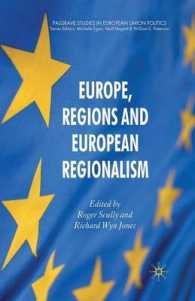Full Description
Intercultural Communication remains the definitive critical introduction to how we navigate cultural difference in everyday life. Now in its fifth edition, the book presents a bold reworking of its core structure, offering ten streamlined chapters that challenge essentialist thinking and centre the lived, shifting realities of intercultural encounters.
Through a rich blend of fictionalised ethnographic accounts, media analysis, and academic extracts, Adrian Holliday explores how culture is constructed and negotiated in settings ranging from universities and workplaces to families, migration, and tourism. Topics include self-representation, institutional discourses, classroom dynamics, popular media, and more. Each chapter ends with reflective questions and readings that support further exploration and small-scale research.
This new edition foregrounds interculturality as a practical and political practice, calling for critical curiosity, ethical self-awareness, and resistance to reductive stereotypes. With its accessible framework and engaging materials, Intercultural Communication is essential reading for advanced students and researchers in intercultural communication, applied linguistics, and related fields.
Contents
Preface
Introduction: Using the book
Chapter 1: Initial concepts
Chapter 2: Conference colleagues: 'I'm not Westernised' (Identity)
Chapter 3: Student voices: 'We are not all the same' (Identity)
Chapter 4: Professional identities: 'How we project ourselves' (Identity)
Chapter 5: Encountering the Other next door (Othering)
Chapter 6: Stamping identity on new language (Othering)
Chapter 7: The dangers of thinking we know (Othering)
Chapter 8: Refugee experience: 'We have been different to what we are now' (Representation)
Chapter 9: Complex images: 'We have no idea how deeply we get things wrong' (Representation)
Chapter 10: The paradoxes of institutional life: things may be more complex and quite different to first appearances (Representation)







